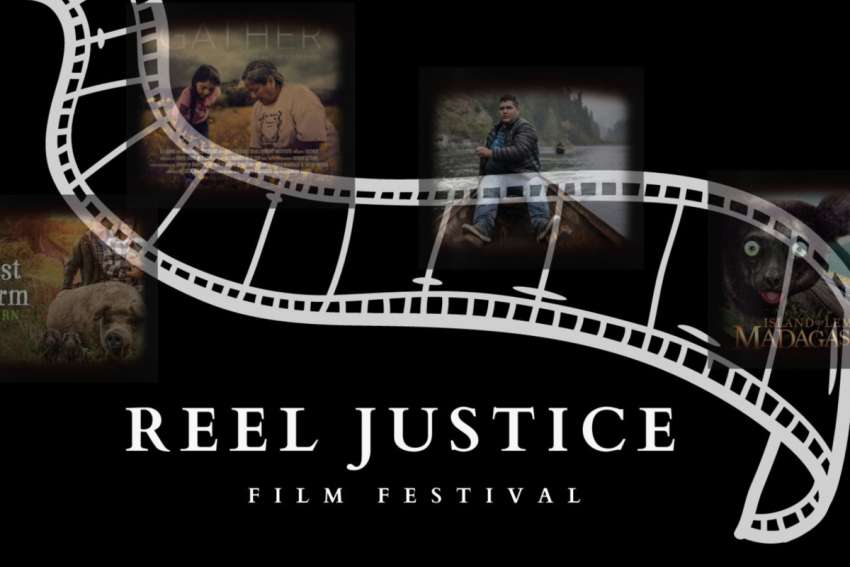The Reel Justice Film Festival aims to share with audiences unfair social, political and economic structures through screenings of related movies.
The idea for annual educational festival is to start the often uncomfortable conversations surrounding social justice issues in a non-threatening and accessible way.
The films selected for 2024’s Reel Justice Film Festival focus on themes of land and placemaking, food sovereignty, land rights, endangered species and organic agriculture, all of which draw inspiration from this year’s Development and Peace Share Lent campaign.
This is the seventh annual Reel Justice Film Festival, which has come a long way since its debut in 2017.
“We started very small with our first showing having maybe one audience member show up and three very nervous Reel Justice team members there to support them,” said Dominy Williams, director of Library and Archives for the Diocese of Hamilton. “We were showing films in church basements but over time we grew, we kept at it, we persevered by promoting our work through church bulletins and word of mouth.”
The festival’s growing audience was abruptly stunted by the COVID-19 pandemic, which in a stroke of good fortune ended up becoming what Williams referred to as “a blessing in disguise” for the team.
“We regrouped, started showing the films online and started bringing in guest speakers to add to that layer of engagement… we just exploded. We now typically get around 80 to 100 people in our film screenings throughout Canada, North America and sometimes even further abroad,” Williams said. “It's great to be able to create this online community of people who are engaged, who want to learn more about social justice issues and who want to find ways to make concrete actions, even if they are small.”
The online format has become the new standard and has come in handy already this year, with the first two films having been shown online. Gather and La Lucha Sigue (The Struggle Continues) launched the 2024 campaign, dealing with Indigenous food sovereignty and Honduras' land defence respectively.
The films each year are chosen by a mainly volunteer committee composed of Williams, two members from Development and Peace’s head office and an assembly of D&P volunteers.
Apart from the films themselves, the committee is also in charge of selecting a speaker to accompany each screening, a component that rounds out the informative side of each movie and gives viewers a more personal takeaway. Among the guest speakers will be Peter Mahfouz, the head of Caritas Lebanon’s youth and emergency council, who will be speaking about various youth initiatives following the screening of Bigger than Us on April 25.
“I think films connect with people on an emotional level, and then having the speakers adds to that, being able to hear somebody in their own words talk about what the issues are and how people can get involved,” said Williams.
This month’s screening of Island of Lemurs, which deals with the protection of the highly endangered species, acts as the event's annual kid-friendly screening, as well as the first of a new initiative being put on by the festival.
“New this year, we're connecting with a program called Development and Peace Schools which brings social justice initiatives into the schools. The students have this opportunity to create and complete social justice tasks and then they earn badges for them,” Williams explained. “It really allows students to have leadership, building opportunities as well as to gain education about social justice issues around the world.”
Williams hopes people will want to learn more about social issues both near and far.
“When you show up, you have this opportunity to learn, to listen to somebody and that’s the first step. To be able to show up, to listen, to learn and to take from that what needs to be taken.”
For more, see reeljustice.hamiltondiocese.com/.

